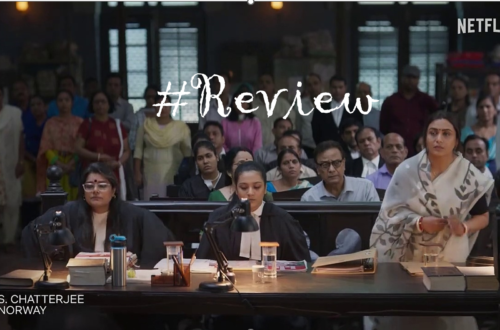Can subjects like Mathematics & Science teach us Values?
Also known as the Blue Planet, the Earth is like a spacecraft that hosts human beings. It is driven by many systems and in order to ensure its proper functioning, all systems should work in solidarity. When one of the systems fail, natural calamities occur. To prevent these calamities, it is imperative for all of us to understand and follow a value system. These values need not necessarily be imparted to children during their childhood. In fact, these values can be learnt on a daily basis. Even classroom teaching can teach us a lot of values. Many argue that what we learn in school is of no use to us. But in reality, all the knowledge that we gain during our childhood while learning different subjects is the true education that we receive in our entire lifetime.

When I introduced this topic in my class, I was overwhelmed by the response I received from the students. At first, they digressed from the topic and tried to deviate the conversation to something more comprehensible. But a few minutes later, they began enjoying this brainstorming session. To begin the class, I wrote the stem sentence on the board:
Every subject imparts good values. They are inculcated in you without your knowledge. You just imbibe them.
Many students made a face. But I found my silver lining when one of them raised their hand and asked, “Ma’am, what do we learn from Languages like Hindi, English or Kannada?”
Since that was just the beginning, I decided to steer the discussion in the right direction by answering the question myself.
“We learn to communicate. We learn to speak with a variety of people. We learn that differences are natural but harmony is also possible. We also learn to master the basics like punctuation and spellings. We learn the basics. In this process, we learn to deal with something unfamiliar. This first step towards solving a problem is very important.”
I could see a glint of familiarity in the eyes of the children. They felt they knew that already. Grabbing the opportunity, I probed, “But aren’t languages meant to teach life lessons?”
They nodded. “What can a tricky subject like Mathematics teach us?” I added.
There was silence for a few moments. And then pat came a reply, “Let’s take an example of parallel lines. When you look at the parallel lines individually, they might seem unequal and opposite. But the same lines when put together, they can form shapes like rectangle or square and reveal that opposites are equal. Same way, different folks have different strokes. But once you get to know the people, you realize how, with the help of collaborative effort, you can reach a larger goal.”

Another one joined the panel and added, “Actually learning about ‘Angles’ also teaches us to look at people and events from different angles. When we look at problems from a wide-angle view (Obtuse angle), they are small and trivial in relation to the whole world.”
I knew I had piqued their interest. They didn’t want to study English that day. Instead of talking about something that would deny them forty minutes of learning, I decided to spend time constructively. While I was ruminating on what had just happened, little Samayra came near me and asked, “Ma’am, what does History teach us?”
I was caught off-guard. I had disliked History all my life and this question put me in a fix. No sooner did I decide to change her question than Ajay intervened with his answer, “History teaches us to be reasonable. It enables us to instinctively consider both sides of any matter whenever forming an opinion or deciding on a course of action. It also teaches us to live and learn. Although we find pleasure in finding what happened in the past, we also learn from the mistakes of others.”

I realized how observant Ajay was! He had decoded the hidden code. How could he do that, I wondered.
“What about Geography? Isn’t it only meant to teach us about the landforms and locations? What values can this subject teach us?” remarked one.
“Navigation! It helps us understand the ‘lay of the land- the order or ugliness of the natural landscape’. We learn to accept the beauty and the ugliness in each person. Geography helps us explore the differences beyond borders and enables us to absorb them with an open mind. I remember what Steven Covey says about principles and values. He uses terminologies that have been derived from Geography. He says that Principles are the territory. Values are maps. When we value correct principles, we have the truth — a knowledge of things as they are.”

These children were marvellous! I had never thought that they would come up with such logical reasoning.
Finally, I posed the last question, “You all have discussed every subject possible but you forgot to discuss the benefits of Science. Can anyone tell me which values can be learnt from Science?”
“Of course ma’am. Please give us a moment to think,” requested one child.
And a few moments later, I received this answer, “Science is easy! It enables us to look at the world in wonder, understand the interdependence of organisms which eventually helps us value life and living things. Science is a perfect example of collaboration- each unit of the ecosystem is connected with other units and they work for mutual benefit. Newton’s first law states that a body at rest remains in its state of rest and a body in motion maintains its state of motion until and unless a net external force acts on it. Our dream cannot be achieved until and unless we apply a net external action (hard work). Same way, Chemistry teaches us how to bond with friends and family. It teaches us to think practically.”
Like a happy camper, I showered praises on my students. They were happy and so was I. I wouldn’t say that since that day their outlook towards studies has changed much, but at least I am sure that they understand the purpose of learning. Now, they will know that education is not merely to make them knowledgable but to enable them to create opportunities for themselves by thinking out of the box!
As teachers, we teach children that ‘Earth’s crammed with heaven…But only he who sees takes off his shoes (Elizabeth Barrett Browning)’. When they come up with such insightful musings, it makes us contented and motivates us to keep polishing the raw diamonds! As long as we are able to convince the young minds about the purpose of learning something, it will prove to be beneficial. This experience proved this right for me.


